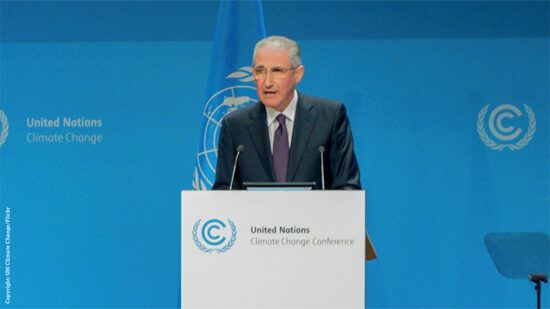The Iroquois Confederacy (located in the U.S. Northeast) founded in 1142 is the oldest living participatory democracy on earth and inspired the formation of the United States and its representative democracy. In 1744 Onondaga leader, Canasattego, gave a speech urging the 13 arguing colonies to unite; Benjamin Franklin took note and printed his words. If he were alive today, I wonder if this wise tribal leader would urge two divisively feuding political parties to unite so that America can heal and reset its public policies to regenerate our ailing planet and allow all our people to thrive.
2020 has been gut wrenching. Not only have we dealt with the multiple repercussions of a global pandemic and the pain from a raised awareness of the acute racial bias embedded in our bureaucratic systems, but add the recent devastating wildfires in the West causing catastrophic loss as well as apocalyptic air quality, news of alleged forced sterilizations on immigrant women and the death of an iconic Supreme Court justice and the toll is profound. As we rapidly approach an important election, the despair and uncertainty felt by American citizens add to the political divisiveness – perhaps greater than ever before in our history. Capitalism as we know it is not working for all …and this appears to be something both sides of the aisle agree upon. In a recent Just Finance survey the majority of respondents were dissatisfied with our current form of capitalism, but importantly almost nine in 10 Americans surveyed agree that this is an opportunity for large companies to hit “reset” and focus on doing right by their stakeholders. The election in November is arguably one of the most important in our country’s history as we will face essential life altering policy decisions if we truly aim for a substantial reshaping and rebirth of our systems.
ESG principles are at the forefront of recovery conversations and policy is critical to furthering the application of true ESG in America’s investments and corporate protocols. The recent attack on ESG by the Labor Department which sought to stifle and outlaw ESG investing by pension funds was misguided, misinformed and shocking and demonstrates the need for a thorough policy review/reform considering the environment and corporate governance at its core as the post COVID-19 economy takes shape.
Jeffrey Hollender, former CEO of Seventh Generation and well known as a conscious capital advocate, is leading an effort to radically affect federal policy. His non-profit, American Sustainable Business Council and a large team of national multi-stakeholder industry experts have authored a wide reaching policy reform proposal entitled “Creating an Economic System that Works for All,” which attempts to identify the most important public policy initiatives required to ensure our economy addresses the priorities of all of our stakeholders. Obviously, ESG principles are embedded throughout this document, which includes areas of Corporate Governance; Access to Capital; Equity, Inequality, Investment & Disclosure; Worker Well Being; Government, Money, Taxes & Politics; Environment; and Trade.
Highlights of the proposal are a call to strengthen CDFIs, community banks and credit unions, increase a wealth tax, improve critical workplace benefits, address access to clean water for all, support the low carbon transition (a carbon fee/tax is recommended), strengthen disclosure and accountable corporate governance practices, and support of new worker cooperatives. “This election is essential to the future of ESG from every perspective imaginable”, said Hollender, “capitalism as currently practiced is in dangerous territory and without significant changes to the public policies that guide its practice we are headed into very turbulent waters.”
The team that authored the policy document stands firm on the motto “THERE IS NO GOING BACK” and plan to release the proposal to the media, business leaders, NGO managers, legislators and key influencers on Oct. 7, as well as sending it to the platform committees of the Democratic and Republican Parties.
The U.S. Impact Investing Alliance also is preparing recommendations to federal policymakers that will be an update to its 2014 National Advisory Board Report, which was crafted when ESG and impact investing were considered new movements. The 2014 version opened with a defining sentence, “A movement is afoot. It links the social consciousness of philanthropy with the market principles of business. It’s about how the power of markets can help to scale solutions to some of our most urgent problems. The movement is called impact investing.”
Fran Seagull, USIIA’s Executive Director, is proud that nearly 80% of the recommendations (which included suggestions for executive action, joint action and influence and legislative action) from its 2014 report, were acted upon in some way. The USIIA decided to urgently update their policy recommendations now because they too believe the current election comes at a critical moment and that our collective response to the economic, social and environmental crises will be an inflection point with impact investing and ESG principles playing a vital role to define a re-imagined economic order.
It notes that our policymakers are confronted with a generational call to lead, and similar to ASBC’s process, have identified primary narratives where they feel public policy can leverage impact investment and ESG principles to reengage the private sector in crafting an equitable and inclusive recovery. USIIA’s two areas of focus related to broad policy are to Transform Community Investment and Accelerate the Transition to Stakeholder Capitalism. It has established a third priority more specific to impact investing and ESG, which is to Foster an Efficient Impact Investing Market.
While ASBC and the USIIA are focused on changing federal policies, the Movement Voter Project believes that in order to address critical policy issues related to communities of color in this essential election, we must strengthen local grass roots movements. It believes that supporting local movements is the most effective and most cost-effective strategy to transform America. It identifies thousands of grassroot organizations that are working to build a true democracy and move the U.S. forward on issues of economic fairness, racial justice, immigrants’ rights, women’s rights, LGBTQ rights, access to healthcare, and environmental sustainability. Instead of funding political candidates (whose terms and influence are limited and transitory), MVP is committed to working at the intersections of social movements, grassroots communities, and elections to ensure that there are big wins while building long-term progressive power.
“Political campaigns are important, but they are like sandcastles. They wash away after the election and get rebuilt from scratch every year 2 to 4 years. Our aim is to build ‘infrastructure’ for democracy, not sandcastles”, said David Mendels, senior advisor of MVP. “We help investors move money to the best civic engagement groups working year round, year after year, on critical elections-and none is more critical than the one in November- but also on advocating for the issues that matter in their communities.”
ESG principles and policies in the renewed economy will affect all communities of color and our indigenous nations are acutely aware of its significance. America’s Native population is engaged in a full court press to encourage the vote greater than ever before. In an August 2020 newsletter the National Indian Family Coalition writes, “Fall is just around the corner and the biggest election of our lifetime is now less than 100 days away.” The 2020 election (and what follows) is not merely important, it is life altering and generationally defining. ESG principles must be supported, adopted, and carried through as priorities to address America’s current crises and define a new paradigm. I believe success will only be achieved with strong collaboration that shifts public policies, affects corporate changes and increases support of our philanthropic organizations. One can argue whether 2020 is in fact the biggest election in our lifetime – but it will be unquestionably defining and hopefully transformative.
Valerie Red-Horse Mohl is the CFO of East Bay Community Foundation, CEO of Red-Horse Financial Group and advisory board chair of Stanford University’s Center for the Comparative Studies in Race and Ethnicity. She can be reached at valerier@valerieredhorse.com.








